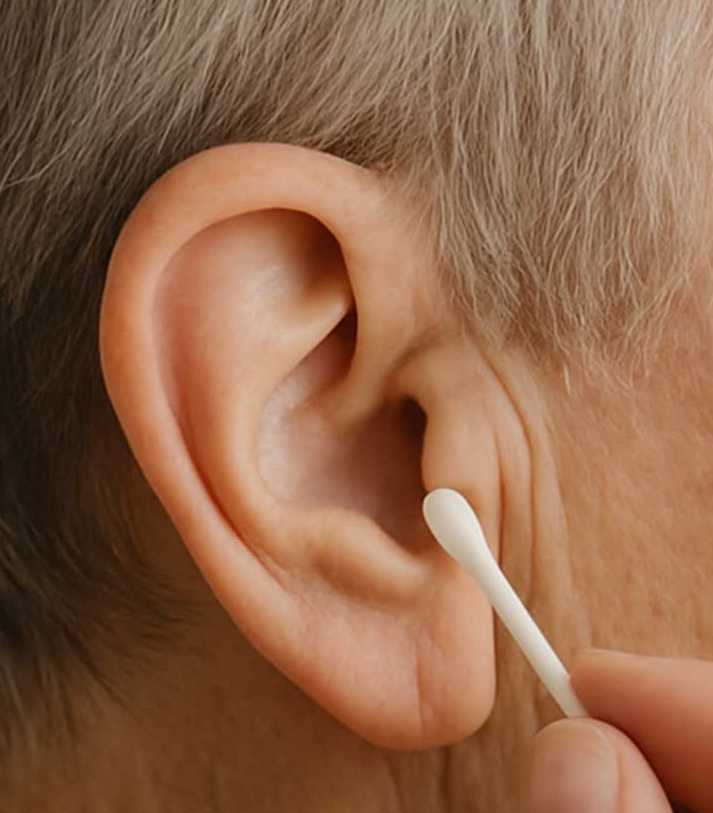
Understanding That Annoying Fullness in Your Ear
Ever felt like one ear is stuffed with cotton—even though there’s no wax or fluid? That odd pressure or muffled hearing can make you anxious, especially if your doctor’s appointment is still weeks away. The ear is a delicate system, and even tiny changes in air pressure can make it feel blocked. When the balance between your middle ear and the outside world is off, you notice it fast.
Why It Feels Clogged Without Any Wax
A clogged ear doesn’t always mean earwax. The middle ear relies on the Eustachian tube—a small channel connecting your ear to the back of your throat—to keep air pressure balanced. If this tube can’t open properly, pressure builds up and your ear feels full. You might also notice ringing (tinnitus) or even mild dizziness. It’s not always obvious what’s to blame, but there are several common culprits.
Eustachian Tube Dysfunction: The Classic Offender
When your Eustachian tube malfunctions, air can’t move in and out of the middle ear the way it should. This is called Eustachian tube dysfunction (ETD). Allergies, sinus infections, or even a simple cold can inflame the tissue around the tube, making it swell shut. The result? A blocked-ear sensation, muffled hearing, and sometimes those annoying popping or clicking sounds—especially when you fly or drive through mountains.
How Allergies Mess With Ear Pressure
Seasonal allergies don’t just make you sneeze; they can also back up your ears. Histamines released during an allergic reaction cause swelling in your nose and Eustachian tubes. This swelling keeps the tube from equalizing pressure in the middle ear. The result is that familiar, nagging ear fullness. Using antihistamines, decongestants, or allergy shots (with your doctor’s guidance) can help calm the swelling and ease the pressure.
Sinus Infections and Their Link to Ear Fullness
A sinus infection—or sinusitis—can turn a simple head cold into a pressure cooker. When sinuses swell and fill with mucus, they press on the Eustachian tubes and disrupt airflow. Besides the ear congestion, you might feel facial pain, notice thick nasal discharge, or lose your sense of smell. Treating the sinus infection—whether with nasal sprays, decongestants, or antibiotics—usually relieves the ear pressure once the swelling goes down.
Video : Top 7 Causes of a Clogged Ear (With Minimal to No Pain)
Could Tinnitus Be Part of the Problem?
Tinnitus, that constant ringing or buzzing, can sometimes come with a feeling of ear fullness. It isn’t a disease but a symptom—often of hearing loss, circulatory problems, or even ETD. If your “clogged” sensation comes with persistent ringing, mention it to your doctor. They can check for underlying issues and suggest treatments to reduce the noise and pressure.
When Earwax Isn’t to Blame
Sometimes the problem is structural rather than something you can clean away. A deviated septum or nasal polyps can interfere with Eustachian tube function. Temporomandibular joint (TMJ) disorders can also cause pain and pressure that feel like ear congestion. And inner ear conditions such as Meniere’s disease bring vertigo, tinnitus, and a chronic sense of fullness. These require professional diagnosis and tailored treatment.
Quick Hacks for Temporary Relief
Need relief before you see the doctor? Try simple pressure-equalizing tricks:
- Valsalva maneuver: Pinch your nose and gently blow as if clearing your ears on an airplane.
- Toynbee maneuver: Swallow while holding your nostrils closed.
- Chew gum or yawn: Both can naturally open the Eustachian tubes.
Use gentle pressure only—forcing air can damage the eardrum.
Home Remedies Worth Trying
A few easy steps may calm the discomfort: apply a warm compress to the affected ear to reduce inflammation, stay hydrated to keep mucus thin, and run a humidifier to moisten dry indoor air. Over-the-counter antihistamines or decongestants can also ease nasal swelling, but follow the directions and check with a healthcare provider if you have any chronic conditions.
Know When to Get Urgent Care
Most clogged-ear episodes are harmless, but some symptoms are red flags. Seek medical attention right away if you notice sudden hearing loss, sharp or severe ear pain, intense dizziness, or nausea and vomiting. These could signal an ear infection, a perforated eardrum, or an inner ear disorder that needs prompt treatment.
Getting Ready for Your Doctor’s Appointment
When it’s time to see your healthcare provider, be ready to describe your symptoms clearly: when they started, how long they last, and what makes them better or worse. Your doctor may examine your ears, nose, and throat, and possibly order a hearing test or imaging. The more detail you give, the easier it is to pinpoint the cause and start the right treatment.
Video : How to Unclog Your Ears
Conclusion: Take Charge of Ear Fullness Before It Takes Over
That clogged-ear feeling without wax or fluid can be unsettling, but it’s rarely a mystery you can’t solve. From Eustachian tube dysfunction and allergies to sinus infections or structural issues, there are many possible explanations—and plenty you can do while you wait for a diagnosis. Use gentle home remedies, keep notes on your symptoms, and seek help if warning signs appear. With the right steps and professional care, you can restore that clear, comfortable sense of hearing and peace of mind.


